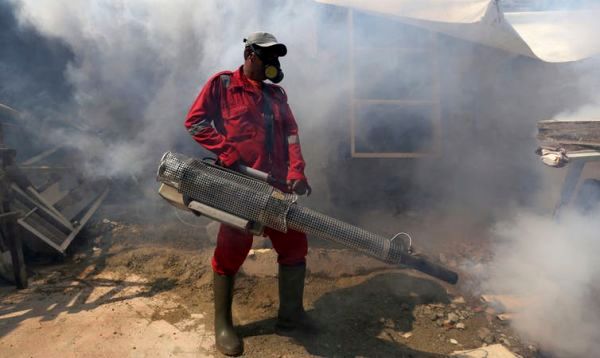Mosquitoes are some of the most deadly creatures on the planet. They carry viruses, bacteria and parasites, which they transmit through bites, infecting some 700 million people and killing more than 1 million each year.
With international travel, migration and climate change, these infections are no longer confined to tropical and subtropical developing countries. Pathogens such as West Nile virus and Zika virus have caused significant outbreaks in the U.S. and its territories that are likely to continue, with new invasive pathogens being discovered all the time.
Currently, control of these diseases is mostly limited to broad-spectrum insecticide sprays, which can harm both humans and non-target animals and insects. What if there was a way to control these devastating diseases without the environmental problems of widespread insecticide use?
 |
Today, genetically modified (GM) mosquitoes, developed during the past several decades of research in university laboratories, are being used to combat mosquito-borne pathogens – including viruses such as dengue and Zika – in many locations around the globe, including the United States. Progress is also being made to use GM mosquitoes to combat malaria, the most devastating mosquito-borne disease, although field releases for malaria control have not yet taken place.
I have been working on GM mosquitoes, both as a lab tool and to combat disease, for over 20 years. During that time, I have personally witnessed the technology go from theoretical, to seeing it used in the field. I've seen older techniques that were inefficient, random and slow pave the way for new methods like CRISPR, which enables efficient, rapid and precise editing of mosquito genomes, and ReMOT Control which eliminates the requirement for injecting materials into mosquito embryos. These new technologies make GM mosquitoes for disease control not a question of "if," but rather a question of "where" and "when."
Don't worry, these genetic changes only affect the mosquitoes – they are not transmitted to people when the mosquito bites them.
In an increasingly interconnected world, and with the added problems of global climate change, pathogens are not likely to stay confined to the developing world, but will be an increasing issue for the U.S. as well. With the evolution of insecticide resistance in mosquitoes a certainty, GM technology has the potential to reduce the burden of mosquito-borne diseases across the globe, without the environmental and health risks associated with harmful pesticide use.
Don't be afraid if it sounds like science fiction; it may just save your life.
Excerpted from an article written by Jason Rasgon, Professor of Entomology and Disease Epidemiology, Pennsylvania State University. Read the full article on The Conversation.


